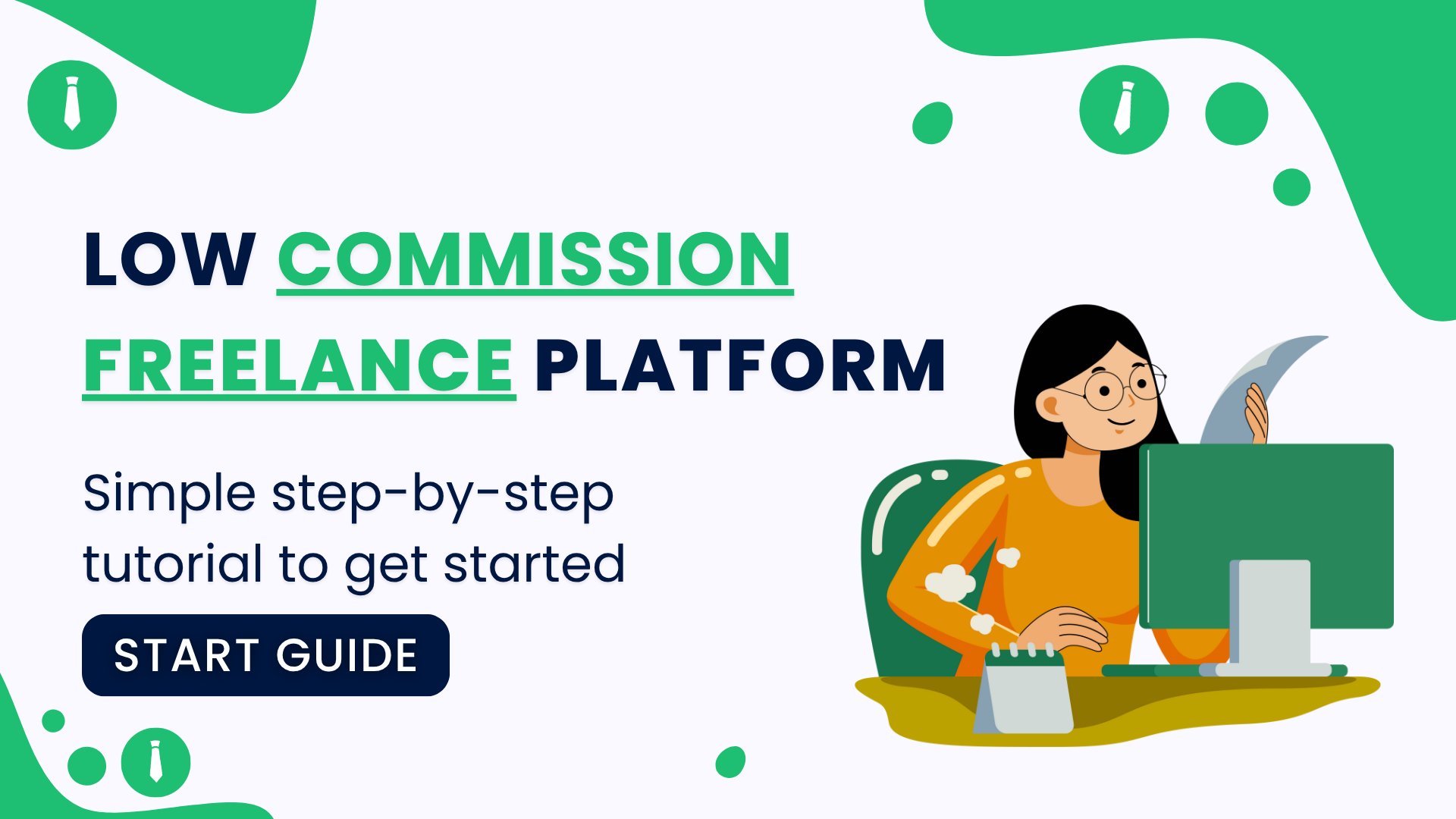Introduction: The Hidden Cost of Commission
This is why a new movement is gaining momentum: low commission freelance platforms. And in 2025, that shift is becoming a revolution
Freelancing has never been more appealing. Flexible hours, global clients, and the ability to work from anywhere—what’s not to love?
Well, the answer for many freelancers comes down to one thing: platform commissions.
For years, established platforms like Upwork and Fiverr have dominated the freelancing ecosystem. But beneath the surface of opportunity lies a growing frustration among freelancers: high fees cutting into already competitive earnings. It’s not just about what you earn—it’s about what you actually keep.
Table of Contents
The Freelance Economy in 2025: A Snapshot
Freelancing now powers over 1.5 billion jobs globally. More people are leaving traditional employment in pursuit of freedom, control, and purpose. But with this boom comes a deeper scrutiny of where freelancers choose to work—and how much they lose in the process.
Did you know?
- Upwork charges up to 20% in commissions for new clients.
- Fiverr takes 20% from every project, regardless of value.
- Add withdrawal fees, service charges, and currency conversions—and you could lose up to 30% of your earnings before they even hit your account.
In a world where talent is abundant but competition is fierce, every percentage point matters.
Why Low Commission Platforms Matter (More Than Ever)
Here’s why more professionals are switching to low commission freelance platforms:
1. More Money in Your Pocket
It sounds obvious, but it’s powerful: keeping more of what you earn allows you to reinvest in tools, marketing, and growth. A 10% difference in commission could mean hundreds—or thousands—more every year.
2. Less Pressure to Raise Rates
High fees often force freelancers to inflate prices just to maintain net income, making them less competitive. A low commission model allows you to stay market-aligned while still profiting fairly.
3. Better Client Relationships
Platforms with lower fees often foster more trust, transparency, and direct communication. Clients also benefit from reduced service fees—making your services more attractive.
4. Ethical Alignment
Let’s be honest: many platforms thrive on volume over value. Low commission platforms often emerge from a mission-first mindset—focusing on fairness, transparency, and long-term success rather than maximizing margins.
The Problem with the Status Quo
Let’s break down what freelancers are truly paying:
| Platform | Commission | Additional Charges |
| Fiverr | 20% | $1+ per withdrawal, buyer fees |
| Upwork | 5–20% | $0.99 per transfer, client service fee |
| Others | 15–25% | Varying with hidden costs |
Now compare that to a low commission freelance platform charging 5% or less—with no surprise fees. It’s not just a better deal—it’s a smarter business decision.
Freelancer Stories: The Breaking Point
- A graphic designer making $10,000/year on Fiverr ended up with just $7,200 after fees.
- A developer on Upwork had to increase rates by 25% to offset deductions—only to lose long-term clients.
- A content writer switched to a low commission platform and instantly saved $400 on her first month’s payout.
These aren’t rare stories. They’re becoming the norm—and freelancers are demanding better.
How Buyers Benefit from Low Commission Platforms
This isn’t just about freelancers. Buyers are tired too:
- High service fees discourage long-term engagement.
- The “race to the bottom” culture often leads to rushed, lower-quality work.
- Hidden costs can ruin budgeting and transparency.
With a low commission model, buyers get real value: better talent retention, clearer pricing, and long-term collaboration opportunities.
Eisqa: A Smarter, Fairer Future for Freelancers
That’s exactly why Eisqa was built—to challenge outdated systems and offer a platform where both freelancers and buyers feel respected, rewarded, and secure.
Why Eisqa is Different:
- Ultra-low commissions (freelancers keep more, buyers pay less).
- No hidden fees or platform traps.
- A vetting process that values quality, not volume.
- Empowered support systems—disputes, payouts, and communication are human-first, not algorithm-driven.
In a time when Upwork and Fiverr dominate through sheer scale, Eisqa is focused on creating a better experience—one transaction at a time.
Freelancers: Is It Time to Migrate?
Ask yourself:
- Are you losing money to platform fees each month?
- Do you feel like just another number in the system?
- Do you want to grow your freelance business with more control?
If your answer is yes to any of these, a low commission freelance platform might not just be an option—it might be your game-changer.
Avoiding the “Too Good to Be True” Trap
Not all platforms offering low fees are created equal. Watch out for:
- Lack of support: Low fees can’t come at the cost of support and dispute resolution.
- No buyer verification: A safe platform should protect both sides.
- Limited growth tools: Your freelance career isn’t static—you need platforms that evolve with you.
Eisqa balances cost-effectiveness with real infrastructure—making it a powerful choice for professionals looking to scale smartly.
Final Thoughts: The Future is Fair
The age of 20% platform cuts and unexpected fees is coming to an end.
Freelancers now have choices—and they’re choosing platforms that treat them like partners, not products.
Whether you’re a seasoned freelancer or just starting your journey, remember: what you keep matters just as much as what you earn. And low commission freelance platforms, like Eisqa, are finally making that possible.


Leave your comment